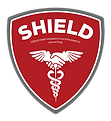Resources for Resilience
NATIONAL
800-267-5463
741-741
A confidential helpline for members of US law enforcement. Offers information on help & resources.
Connects people in crisis with a trained crisis counselor by texting BADGE or “Help” to 741-741.
206-459-3020
866-676-7500
24/7 help line staffed by first responders for first responders & their families. Assist with treatment options for responders suffering from mental health, substance use and other personal issues.
Run by Frontline Responder Services. Offers
24/7 coverage with first responder call-takers.
615-373-8000
Trauma services for first responders.
Police-focused suicide hotline.
Provides and links a range of services for veterans.
The national suicide hotline. Has first responder volunteers.
9-8-8
Free and confidential treatment referral and information service.
1-800-662-4357
LOCAL AND STATEWIDE RESOURCES FOR POLICE
Employee Assistance Program. Your department or county may offer confidential resources or referrals.
2-1-1
A free and confidential service that connects callers to information about critical health and human services available in their community.
Free Critical Incident Stress Management (CISM) and crisis intervention services for public safety personnel.
508-820-2000
Boston Police Department’s Peer Support Unit.
Office (M-F, 9a-5p):
617-343-5175
The LEADER (Law Enforcement, Active Duty, Emergency Responder) program at McLean Hospital provides specialized mental health and addiction services, designed specifically for men and women in uniform.
Statewide peer support, wellness resources, and 24/7 confidential support line available to all MassCOP members.
800-267-5463
Critical Incident Stress Management (CISM) for police and support staff.
INFORMATIONAL RESOURCES
A report on the current and ongoing needs of first responders on the front lines of the overdose crisis.
A collection of resources, trainings, and toolkits on understanding and addressing vicarious trauma for first responders.
Tools for law enforcement on vicarious trauma, compiled by the US DOJ Office of Justice Programs.
FBI Law Enforcement Bulletin on understanding moral injury in law enforcement
Guidance for agency leaders on creating a culture that encourages help-seeking.
Poster listing warning signs of suicide in law enforcement officers, published by the IACP.
Toolkits and other programmatic material on preventing officer suicide.
Information and trainings on preventing suicide amongst law enforcement officers.
Article in Police Magazine introducing breathing techniques and why they are helpful.
Instructions on tactical (or box) breathing by U.S. Navy.
Mass. Gen. Law on police duty to intervene.
Information on the Active Bystandership for Law Enforcement (ABLE) Project, which provides training and technical assistance at no cost to departments that are accepted into and remain eligible for the program.
A SHIELD demonstration of safe search and frisk practices to avoid needlestick injury, presented by Brad Anders (then a sergeant with Lee’s Summit PD, now sheriff of Pettis County, Missouri).
A statement from the American College of Medical Toxicology and American Academy of Clinical Toxicology on fentanyl safety for first responders.
A fact sheet on fentanyl and opioid response for law enforcement.
A fact sheet on fentanyl and carfentanil exposures and risks for first responders, published by the Northern New England Poison Center.
Informational resources on xylazine compiled for law enforcement by the Police Assisted Addiction & Recovery Initiative (PAARI), Brandeis University, and Thomas Jefferson University.
Information on deflection programming.
A report on diverting to community service organizations for mental health needs.
Provides definitions of key terminology related to substance use and links to learn more.
The 10 guiding principles of recovery from mental disorders and/or substance use disorders.
WEB AND APP-BASED RESOURCES
Professional tools
Talk Space
Substance use monitoring
SURE, Tempest, Reframe
Nutrition Guidance
My Fitness Pal, NOOM, MyPlate, Daily Dozen (plant-based)
Meditation
Insight Timer, Calm, Shine, Headspace
Journaling
Mood Kit
Sleep Aid Apps
Calm, MyNoise, Rise, Sleep Cycle
Apps and settings to aid digital health
Manage your screen time for iPhone and Android, Rise
Guided exercise and yoga programs and classes, etc.
iFit, RunKeeper, Gaia, Nike Run Club
Resources for Task-Shifting
TASK-SHIFT TO EVIDENCE-BASED TREATMENT (MAT/MOUD)
Only statewide, public resource for finding licensed and approved substance use treatment and recovery services.
800-327-5050
Project NORTH (Navigation, Outreach, Recovery, Treatment, and Hope) is a free, grant-funded service managed by the Massachusetts Trial Court and the Massachusetts Probation Service. Provides Recovery Support Navigators to people who currently or in the past year have cases in eligible courts or are under supervision in those locations. Also available to their families.
Best practices for post-overdose outreach, published by PRONTO, an evaluation study of post-overdose outreach programs in Massachusetts.
TASK-SHIFT TO PEER COACHES
Only statewide, public resource for finding licensed and approved substance use treatment and recovery services.
800-327-5050
A list of free accessible peer-led spaces that provide individuals in recovery from substance use, as well as families and loved ones affected by addiction, the opportunity to both offer and receive support in their community environment.
TASK-SHIFT TO HARM REDUCTION
Map of programs with information on their services, such as naloxone distribution.
Find a Syringe Service Program (SSP) in Massachusetts.
A resource for the community on understanding and locating harm reduction services.
SafeSpot, formerly known as the Massachusetts Overdose Prevention Helpline, is a service people can use if they use drugs alone to alert EMS if they become unresponsive. It is a service to keep people alive, build trust, and connect to resources.
Recent Publications, News, and Events
The Elephant in the Room Can No Longer be Ignored: Police Suicide
Bob Long D/LT. (Ret.) Mass State Police,The Somerville/Medford News Weekly, June 20, 2025
.png)